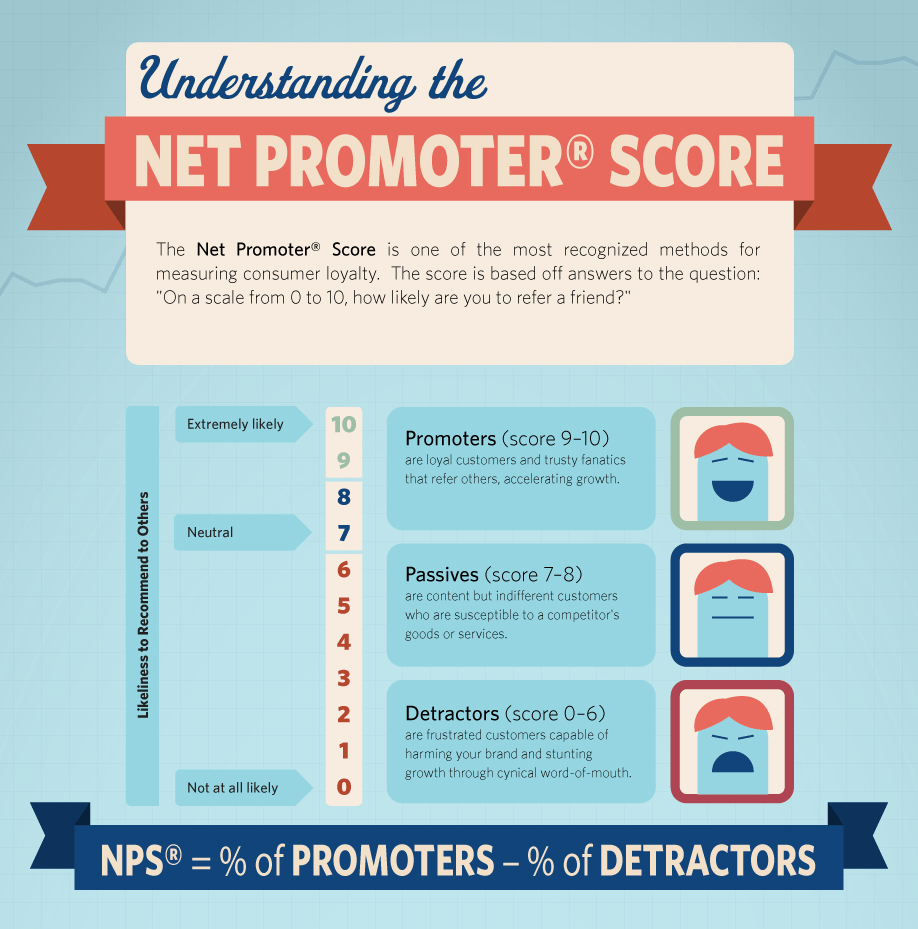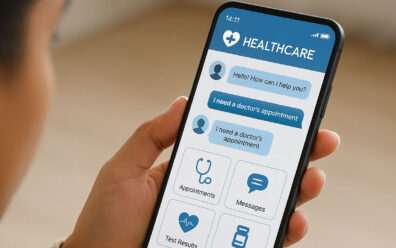Contact-Center Outsourcing6-minute read
4 Customer-focused Contact Center Metrics You Should Be Tracking
For most businesses, contact center metrics are an integral part of a customer service strategy. And with good reason: As the technology used to communicate with customers becomes more and more advanced, the opportunities to track those interactions also expand. This can provide a business with valuable information into making its customer experience (CX) the best it can possibly be.

And if that isn’t on your list of action items, it should be: More and more data shows that offering superior service to your customers is a critical factor in driving growth. For instance, customer experience research from Bain & Company has found that businesses that focus on their CX can grow their revenues as much as 8% above their markets.
This makes perfect sense when you consider that a great CX fosters satisfaction and loyalty, helping transform customers from one-time shoppers to long-time brand advocates. And there’s real value in that, too: According to the Harvard Business Review, it can cost 25 times more to acquire a new customer than it does to keep an existing one.
“According to the Harvard Business Review, it can cost 25 times more to acquire a new customer than it does to keep an existing one.”” Share on X
These are real financial advantages, offering businesses a chance to not only improve their earning capacity in the short term, but also to put in place a foundation for long-term success. And this can be achieved, in large part, with the smart use of contact center metrics, or measuring the success with which you deliver customer care to gain insights into where you can improve customer satisfaction.
Learn More: About the Essential Types of Contact Center Metrics
Yet for all the benefits of contact center metrics, there’s a tendency to focus too much on issues related to operations rather than the customers themselves. Luckily, placing an emphasis on the customer is relatively easy to do. Along with standard CX indicators, such as hold times and first-call resolution rates, there are a few customer-focused contact center metrics that every organization should be tracking.
4 Customer-focused Contact Center Metrics You Should Be Tracking
1. Customer satisfaction. What aspects of your customer experience are working, and which aren’t? If they could rate the service you provide on a scale of 1 to 10, what kind of score would you receive? These are important questions, offering very clear paths to improve your customer experience. Too often, though, businesses fail to ask customers to answer them in a direct way.

Source: https://unbounce.com/photos/net-promoter-score.png.
How to track customer feedback? Consider Implementing customer feedback surveys, which can give you a quantitative way to see just how your customers perceive your business. And they’re fairly easy to administer, whether via brief phone calls, social media polls or emails (of which there are many templates and services).
How to use the data you receive to improve customer feedback? When you ask customers exactly what they think should be improved regarding the quality of service they receive from you, you tend to get a direct answer. It’s more than likely that your first customer satisfaction survey will provide more than enough action items to keep you busy until the next one.
Related resource: How to Measure Customer Satisfaction
2. Employee commitment. One of your company’s most telling metrics regarding customer satisfaction is also one that has little to do with traditional call center metrics—employee satisfaction. And if you think this isn’t directly tied to the quality of your CX, think again: Your employees are your ambassadors of your business, and the level of positivity they display tends to rub off on customers, too.

Your employees are your ambassadors of your business, and the level of positivity they display tends to rub off on customers, too.
Source: www.shutterstock.com.
How to track employee commitment? There are a number of contact center metrics that indirectly measure employee satisfaction, such as agent attrition and turnover rate. There’s a direct line between these figures and employee commitment—if you have a high turnover rate, for instance, it’s clear that something in your culture is causing dissatisfaction.
How to improve employee commitment? Particularly among your call center agents, we advocate a strong company culture and an active ongoing education program. Both of these will help employees feel like they’re part of a team, and give them the tools to grow that will lead to personal and professional fulfillment.
Related resource: How to Improve Your Company Culture with Ongoing Education
3. Customer complaints. No matter how great the service or sterling its reputation, every business receives its share of customer complaints. In fact, the more successful a company is, the more that customers tend to complaint, thanks to a higher profile and raised expectations. Yet too often, businesses ignore customer complaints, instead of carefully mining them for clues into how to improve customer satisfaction.

The more successful a company is, the more that customers tend to complaint, thanks to a higher profile and raised expectations.
Source: www.shutterstock.com.
How to track customer complaints? Set up a separate line for customer complaints—or, if you have the resources, a dedicated contact center agent. By focusing a single channel on customer complaints and keeping tabs on the most common sources of dissatisfaction, you’ll soon have a library of key points about what it is that customers want improved regarding the CX you offer.
How to resolve employee complaints? Keeping track of complaints gives you a golden opportunity to learn what customers would most like to see changed in the quality of service you offer. By taking complaints seriously—recording and measuring them, instead of ignoring or dismissing them—you’re giving yourself key info to improve your weakest spots.
Related resource: How to Implement a Customer Complaint Process that Works
4. Likelihood of recommendation. Asking customers if they’d recommend your business serves a dual purpose: It helps you determine if they’d actually do so—and if not, why not. And just as importantly, it puts the idea in their head. As CX experts emphasize again and again, few things are as valuable to a business as customer referrals, which can bring in new customers at zero marketing expense.

Few things are as valuable to a business as customer referrals, which can bring in new customers at zero marketing expense.
Source: www.shutterstock.com.
How to track whether customers would recommend your business? This can be accomplished with one simple question on your customer satisfaction survey: “If you had the opportunity to recommend our business to a friend or family member, how likely would you be to do so?” And make sure to follow it up with, “If not, why not?”
How to improve your chances of receiving customer recommendations? By asking what you can do to earn their recommendation, you’ll get hard data on what your customers would like to see improved, while giving them incentive to make a recommendation after you’ve done so. And when you do implement the improvements, be sure to let them know with a follow-up message.
Related resource: How to Earn Customer Referrals by Boosting Satisfaction and Loyalty
We Can Help Improve Your Contact Center Metrics
If implementing these contact center metrics—or any aspect of achieving a more customer-focused perspective—seems like an intimidating prospect, you’re not alone. Many business leaders feel the same way. And with good reason: Providing a superior CX has become a highly specialized skill, requiring real expertise and experience within a huge variety of communications channels.
That’s many businesses now choose to outsource these services to an on-demand customer care provider. By relying on the experts, you’ll get a chance to meet your CX goals in a way that helps you stay in front of the competition, and at a favorable price point, too. And if you choose the right call center provider, you’ll also improve your chances for upselling and even overall operational growth.
Related resource: How Contact Center Outsourcing Can Increase Close Rates by 30% and Extend Add-on Sales by 20%
With more than 20 years of experience helping businesses of all sizes, and across all industries, achieve the best possible CX, Working Solutions is well-positioned to help your business implement the contact center strategy it needs to succeed.
Interested in learning more? Contact us here to schedule your complimentary consultation with a Working Solutions contact center expert.
Let's connect.
This Might Interest You...
This website uses cookies to personalize and improve your experience. Continue browsing our site if you agree to our Cookie Policy or feel free to Manage Cookies yourself.


